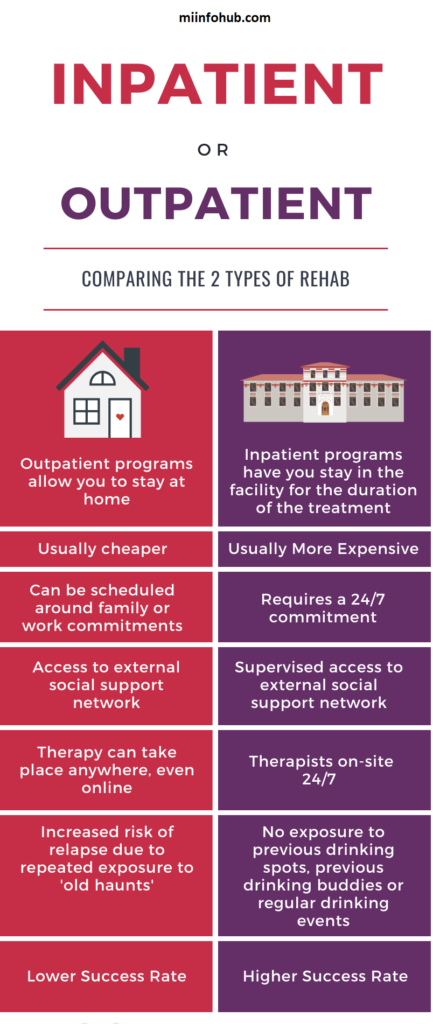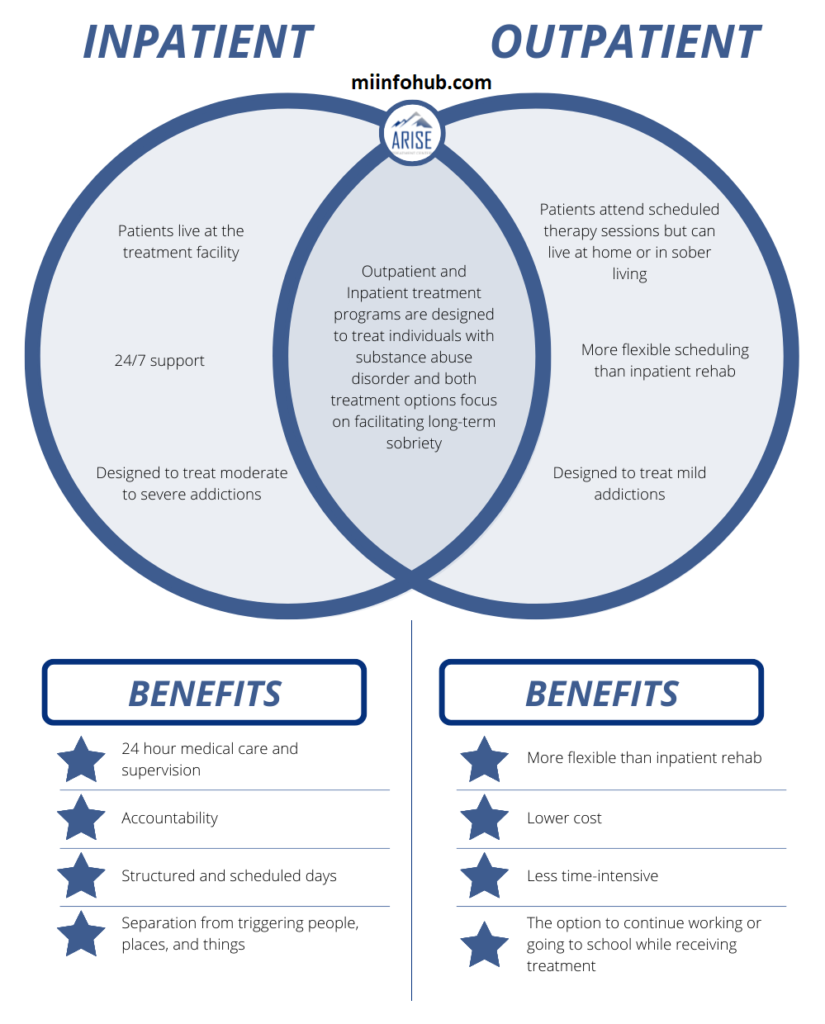Outpatient mental health treatment is an essential form of mental healthcare that allows individuals to receive therapy, counseling, and other psychiatric services while continuing their daily lives outside of a hospital or residential setting. Unlike inpatient treatment, outpatient care offers flexibility, helping patients manage their conditions without disrupting their personal or professional lives. This guide provides a detailed exploration, covering its key features, benefits, types, and what you can expect from this approach.

Introduction To Outpatient Mental Health Treatment
This treatment is designed for individuals who need professional mental health services but do not require full-time, inpatient care. Patients attend scheduled therapy sessions, group counseling, or psychiatric consultations while still living at home and engaging in their regular routines. This form of treatment is commonly used for managing conditions like anxiety, depression, PTSD, bipolar disorder, and substance abuse. If you want to read and know more about mental health then click here.
Key Features Of Outpatient Mental Health Treatment
- Flexibility: Patients can maintain their daily responsibilities, such as work, school, or caregiving.
- Cost-Effective: Outpatient care tends to be less expensive than inpatient treatment since it doesn’t require 24-hour monitoring.
- Customizable: Treatment plans are tailored to the individual’s specific needs, including therapy frequency and types of services.
- Variety of Services: Includes individual therapy, group therapy, family therapy, medication management, and more.
- Community-Based: Patients remain within their support networks, making it easier to implement strategies learned during therapy in real life.

Benefits Of Outpatient Mental Health Treatment
This treatment offers many benefits that make it a preferred choice for many individuals:
- Maintain Independence: Patients can continue with their normal life activities while receiving treatment.
- Access to a Support System: Being at home allows patients to stay connected with family, friends, and community support systems.
- Lower Disruption: There’s no need to take a prolonged leave from work or school.
- Continuity of Care: Outpatient services allow for long-term management of chronic mental health conditions.
- Accessibility: Many outpatient programs offer flexible scheduling options, including evening or weekend appointments.
Types Of Outpatient Mental Health Treatment
This treatment comes in various forms, depending on the intensity and nature of the condition. Common types include:
Individual Therapy
One-on-one sessions with a therapist or counselor, focusing on understanding and addressing the patient’s mental health challenges.
Group Therapy
Facilitated sessions where individuals with similar mental health concerns come together to share experiences, coping strategies, and support one another.
Family Therapy
Involves working with family members to improve communication, resolve conflicts, and understand the dynamics that may contribute to a patient’s condition.
Intensive Outpatient Programs (IOPs)
A more structured program involving multiple therapy sessions per week, usually for individuals who need more than traditional outpatient services but don’t require hospitalization.
Partial Hospitalization Programs (PHPs)
These are more intensive than IOPs, requiring patients to attend treatment for several hours each day, typically 5-7 days per week, but still allowing them to return home afterward.
Medication Management
Psychiatric services include managing and adjusting medications for mental health disorders like depression, anxiety, bipolar disorder, and schizophrenia.

Who Is Outpatient Mental Health Treatment For?
Outpatient mental health treatment is ideal for individuals who:
- Have mild to moderate mental health issues.
- Do not require round-the-clock supervision.
- Are transitioning from inpatient care back into the community.
- Need ongoing support for managing chronic conditions.
- Want a less disruptive treatment option while maintaining their daily responsibilities.
What To Expect During Outpatient Mental Health Treatment?
Patients receiving outpatient mental health care can expect:
- Assessment: Initial evaluation of mental health needs by a licensed professional, who will help develop a customized treatment plan.
- Therapeutic Sessions: Regular sessions with a therapist or counselor, which can occur weekly or more frequently depending on the program.
- Monitoring: Ongoing assessment of treatment effectiveness, with adjustments made as needed.
- Support System Involvement: Family and friends may be encouraged to participate in therapy sessions if necessary.
Advantages And Disadvantages
Advantages:
- Affordability: Outpatient care is typically less costly than inpatient services.
- Flexibility: The patient can maintain work, school, and social activities.
- Continued Support: Encourages the use of external support systems while receiving treatment.
Disadvantages:
- Lower Intensity: May not provide enough structure or support for individuals with severe mental health conditions.
- Limited Supervision: Patients must manage their own safety and medication adherence without the 24/7 monitoring of inpatient care.
- Potential Distractions: The freedom to return to everyday life may expose individuals to stressors that may hinder their recovery process.

Cost
This treatment varies in cost, depending on the services provided, location, and insurance coverage. On average, patients can expect to pay anywhere from $100 to $300 per therapy session without insurance. However, many health insurance plans cover a significant portion of outpatient mental health services, reducing the out-of-pocket cost.
How To Choose The Right Program
When selecting an outpatient mental health treatment program, consider the following factors:
- Credentials and Experience: Ensure that the program’s therapists and counselors are licensed professionals.
- Range of Services: Look for a program that offers a variety of therapy options and personalized care plans.
- Location and Accessibility: Choose a facility that is easy to get to and has flexible scheduling options.
- Insurance Coverage: Verify that the program accepts your insurance or offers financial assistance if needed.
- Reputation: Research the program’s reviews, success stories, and overall reputation in the mental health community.
FAQs
Q1: How long does outpatient mental health treatment last?
It varies based on the individual, but treatment can last from a few weeks to several months or longer depending on progress and goals.
Q2: Can outpatient treatment work for severe mental health conditions?
In some cases, yes. However, those with severe conditions may need inpatient care or a combination of outpatient treatment with more intensive services like PHPs or IOPs.
Q3: Does insurance cover outpatient mental health treatment?
Most health insurance plans offer coverage for outpatient mental health services, but it’s essential to check with your provider for specific details.
Q4: Is outpatient treatment as effective as inpatient treatment?
Outpatient treatment can be just as effective, particularly for individuals with mild to moderate mental health issues or those transitioning from inpatient care.
Conclusion
Outpatient mental health treatment is an effective option for individuals seeking flexibility, affordability, and ongoing care without the need for full-time hospitalization. Whether you’re dealing with anxiety, depression, PTSD, or other mental health challenges, this form of treatment offers a range of services tailored to your needs while allowing you to continue your daily life.
If you’re considering outpatient treatment, speak with a mental health professional to assess your needs and determine the best course of action. With the right program, outpatient care can help you manage your condition, improve your quality of life, and maintain your independence.


